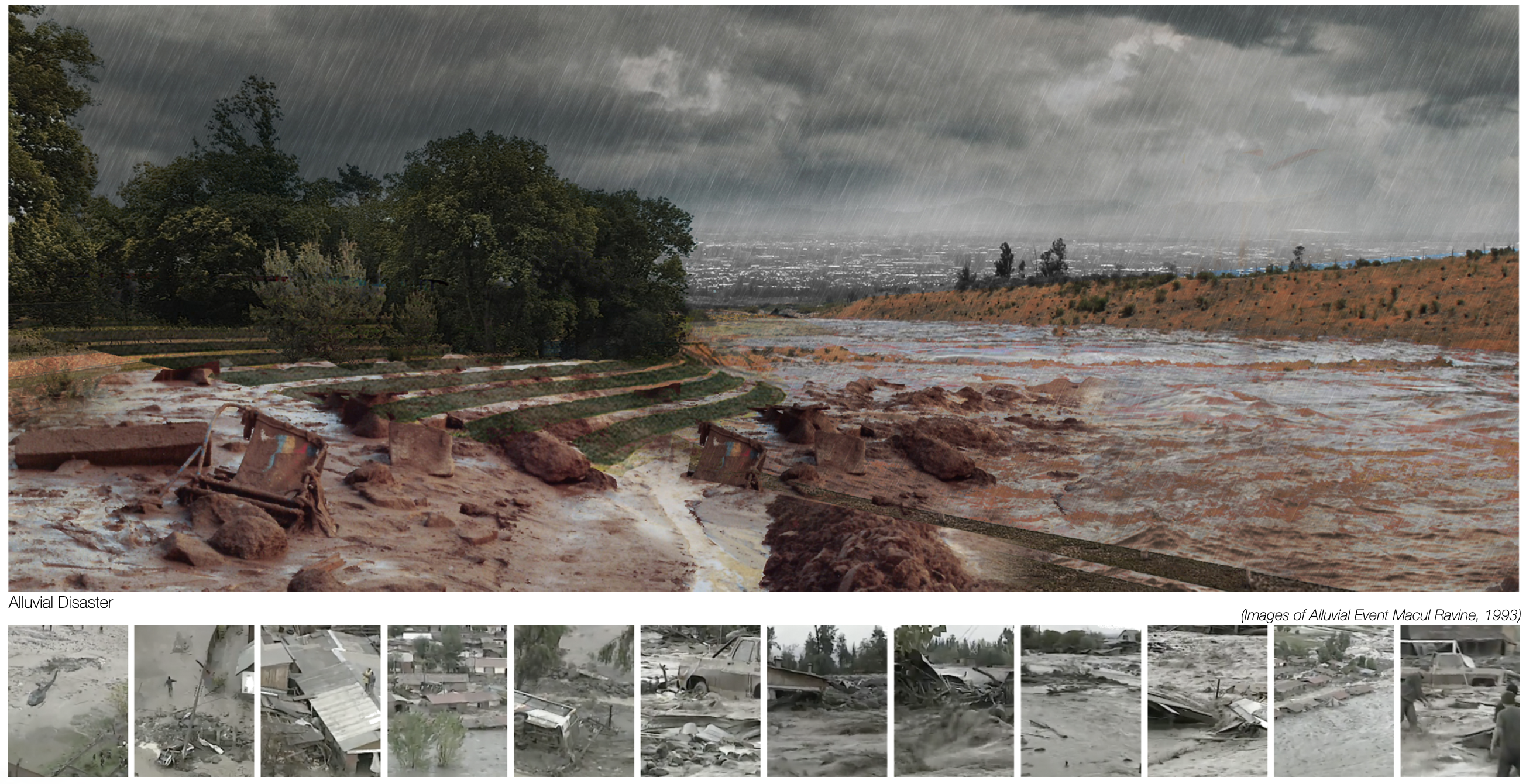
Landscape Reclamation Infrastructure in the Andean Foothill: Alluvial Park Macul Ravine
Landscape as Infrastructure for Risk Reduction and Urban Resilience
Pontificia Universidad Católica de Chile
Large hydraulic infrastructures have been built to prevent and mitigate damages produced by alluvial events that have affected a large part of the Chilean territory in recent years. Due to the effects of climate change, these events have grown not only its frequency but also its intensity. However, these constructions have been design and thought from Engineering only, resulting monofunctional structures segregated from urban, social and ecological dynamics.
After a deep look into an alluvial event taken place in the Quebrada de Macul in Santiago in 1993 — an alluvial ravine in the Andean foothills of the city — this project sees and works with the place as a multiplatform territory discussing the role of intermittent water in urban public space as a resilient response to the ecological system in the city including and resolving problems such as vulnerability and risk through a landscape architecture project. The proposal is an organized decanted pool system located in unused sites, recognizing the alluvial character of the the foothill and the Piedmont landscape transforming its monofunctional condition to one that consolidates a new dynamic space mediating and strengthening the urban and ecological relationship between Santiago and its geography.
